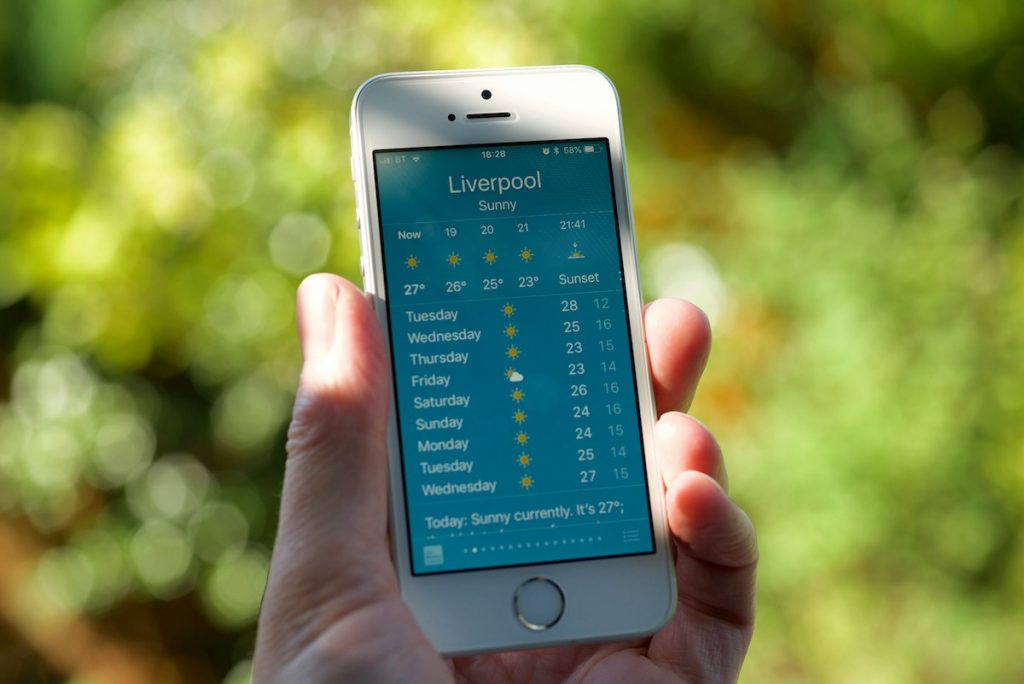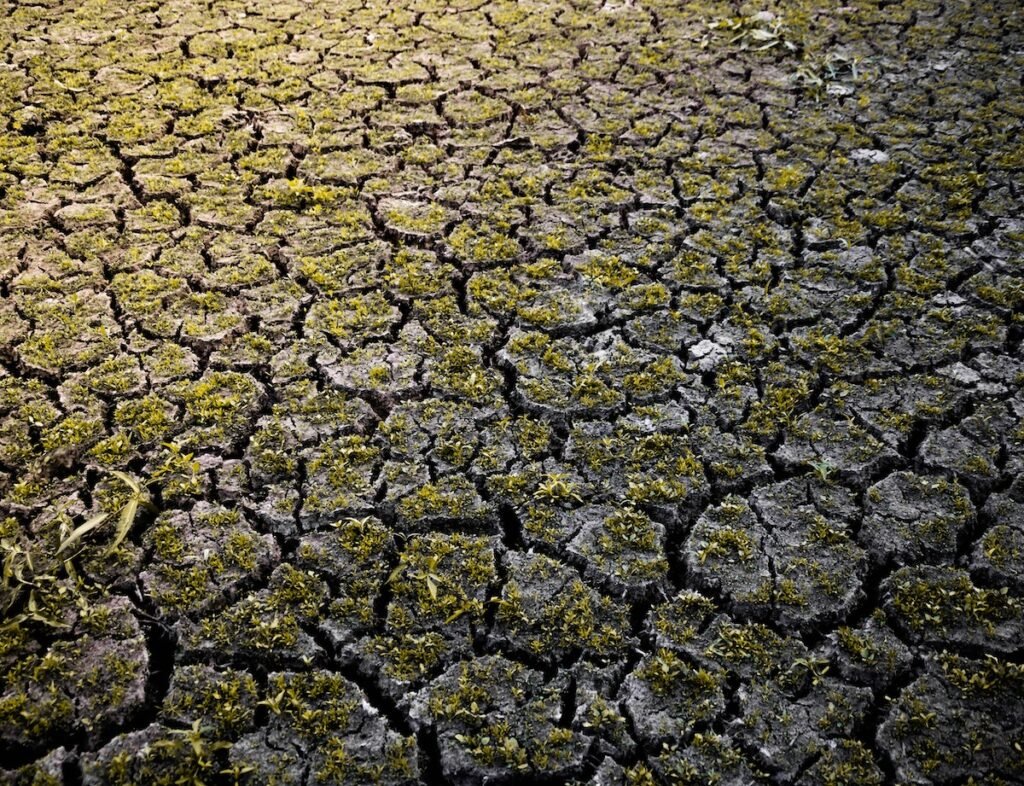The human physique is a finely tuned instrument, intricately attuned to the atmosphere wherein it exists. Think about, for a second, the fragile steadiness of our physique’s inner temperature regulation. A mere one-degree Celsius improve in our physique temperature can sign the onset of fever, triggering a cascade of physiological responses as our immune system rallies to revive equilibrium. This sensitivity to temperature fluctuations underscores the profound interconnection between our bodily and psychological well being.
From the refined shifts in ambient temperature to the onslaught of maximum climate occasions, our our bodies and minds are inextricably linked to the ever-changing local weather that surrounds us. But, whereas the seen impacts of local weather change could dominate headlines and seize our consideration, it’s the refined, long-term variations in temperature that usually wield essentially the most profound affect on our psychological well-being (Palinkas & Wong, 2020).
The sudden improve in temperature may influence psychological well being by means of varied mechanisms. Physiological adjustments, like shifts in blood move or serotonin ranges, and cognitive alterations because of disrupted sleep and results on mind connectivity are potential. Societal shifts induced by temperature adjustments, reminiscent of heightened aggression and stress from financial downturns or elevated alcohol consumption, additionally contribute (Hou et al., 2023). Moreover, people with pre-existing psychological sicknesses, presumably because of impaired thermoregulation from psychiatric medicines, could also be particularly susceptible (Mullins & White, 2019).
Analysis has proven that long-term shifts in temperature patterns can have a major influence on our psychological well-being, with implications that ripple by means of our each day lives in methods each seen and unseen. For example, rising ambient temperatures have been linked to elevated suicide charges in lots of international locations, additional underscoring the pressing want to handle the psychological well being implications of local weather change. The World Well being Group (WHO), in a latest coverage temporary (2022), emphasises the exacerbation of social, environmental, and financial danger elements for psychological well being issues by local weather change, together with the present gaps in psychological well being methods and companies to handle these wants.
Of specific concern are the susceptible populations amongst us — girls, kids, and the aged — who’re much less able to coping with ambient temperature adjustments within the context of local weather change. Simply as a fever could have extra damaging results, and extra simply, on such populations, so too do the refined temperature variations caused by local weather change exert a disproportionate toll on their psychological well being.
Briefly, the gradual, regular creep of rising temperatures, and the gradual erosion of acquainted local weather patterns — these too exert a silent however profound affect on our psychological well-being, with susceptible populations bearing a disproportionate burden.
There’s ample proof for this. A present systematic assessment (Thompson et al., 2023) make clear the intricate relationship between ambient temperature and varied features of psychological well being, analyzing how fluctuations in temperature are linked to suicidal behaviour, hospital attendance or admission for psychological sickness, and the general well being and well-being of communities.

Rising local weather temperatures impose dangers to psychological wellbeing and have been related to elevated suicide charges in lots of international locations.
Strategies
This systematic assessment goals to reply the analysis query: what’s the hyperlink between elevated temperature and psychological well being? To have a look at this assessment query extra conclusively, each qualitative narrative and meta-analysis had been used to search out the connection between temperature rise and psychological well being. Researchers searched the eligible articles from varied databases, together with Internet of Science, Embase, Psych INFO, and PubMed, screening articles printed as much as April 7, 2022. The assessment lastly included 114 analysis articles, and 19 research are eligible to run a meta-analysis to have a look at the general efficient measurement of the affiliation between temperature and psychological well being.
To be eligible for inclusion, included research may tackle such relationships in each medical and non-clinical populations. Furthermore, the articles’ technique contains epidemiological and observational research in people of all ages, evaluating real-world responses to ambient out of doors temperature, with documented psychological well being outcomes. Researchers deliberately excluded research focusing solely on bodily well being outcomes or these involving manipulated or managed temperature situations.
Two reviewers evaluated the standard of the included research, and the Newcastle-Ottawa Scale and the Workplace of Well being Evaluation and Translation (OHAT) method had been adopted to evaluate the danger of bias in particular person research. Moreover, qualitative synthesis was employed to extract significant insights from eligible research. For the meta-analysis, a random-effects mannequin was utilized, combining research that reported related or equal impact statistics and shared comparable publicity, final result, and metric parameters.
Outcomes
Total, the findings assist the hyperlink between out of doors temperature and psychological well being outcomes over the world. The examine divided temperature measurements into three classes: absolute temperatures, temperature variability, and heatwaves, noting that every class had completely different metrics and definitions. Whereas larger temperatures in comparison with the native norm had been sometimes linked with poorer psychological well being outcomes, the complicated nature of contextual variables and inconsistent changes within the literature point out a nuanced, non-linear, and culturally dependent connection. An summary of the findings is introduced under:
Suicide outcomes
- 86 research are related to local weather change and suicide and had been narratively synthesised
- A 1°C improve in imply month-to-month temperature correlated with a 1.5% rise in suicide incidence
- A 1°C improve in imply each day temperature was related to a 1.7% improve in suicide incidence
- A 1°C improve in imply month-to-month temperature resulted in a danger ratio of 1.01 for suicides.
Hospital attendance or admission
- 43 research reported hospitalisation or admissions for psychological sickness
- Heatwaves led to a 9.7% greater incidence of hospital attendance or admission for psychological sickness
- Greater each day imply temperatures (99th percentile vs. fiftieth percentile) confirmed a danger ratio of 1.02
- No important affiliation was discovered between a ten°C improve in each day imply temperature and hospital attendance.
Group psychological well being and wellbeing
19 research reported an affiliation between ambient out of doors temperature and neighborhood psychological well being and well-being outcomes. Heatwaves weren’t investigated on this class, and questionnaires used to evaluate psychological well being and well-being had inconsistent findings (68% of research). The relationships between ambient out of doors temperature (together with absolute temperatures, temperature variations, and heatwaves) and psychological well being are proven under:
- 84% of research reported a major affiliation between temperature metrics and psychological well being
- 74% of research confirmed greater temperatures had been typically related to worse psychological well being and well-being outcomes
- Some exceptions had been famous, reminiscent of improved wellness in “comfy climate hours” and improved temper outdoors in spring
- 17% of research didn’t discover a important affiliation between temperature and psychological well being or wellbeing.

This assessment means that elevated temperature and temperature variability might be related to elevated circumstances of suicide and suicidal behaviour, hospital attendance or admission for psychological sickness, and poor neighborhood well being and wellbeing.
Conclusions
This systematic assessment and meta-analysis present compelling proof that rising temperatures are related to worse psychological well being outcomes. The examine discovered a hyperlink between excessive absolute temperatures, altering temperatures, and warmth waves and an elevated danger of suicide, suicidal behaviour, and hospital admissions for psychological sickness. It additionally demonstrates hyperlinks between neighborhood psychological well being and wellness, in addition to absolute and variable temperatures.
Nevertheless, methodological heterogeneities and ranging influence sizes require a cautious interpretation, making the general confidence of those findings low.
Regardless of a substantial physique of supportive knowledge, the authors emphasise the necessity for extra high-quality analysis to extend confidence in figuring out the influence of ambient out of doors temperature on suicide danger. This detailed data is crucial for informing focused interventions and techniques in psychological well being coverage and apply.

The authors emphasise the necessity for extra high-quality analysis to extend confidence in figuring out the influence of ambient out of doors temperature on suicide danger.
Strengths and limitations
This systematic assessment integrated a considerable pattern measurement, with three meta-analyses encompassing 156,109 members. To comprehensively discover the hyperlink between out of doors temperature adjustments and psychological well being outcomes, researchers employed each qualitative synthesis for heterogeneous research and quantitative synthesis by means of meta-analysis. Clearly indicating the pattern measurement for every synthesis technique aids readers in a concise interpretation of analysis findings. Moreover, the examine outlined ambient temperature adjustments in three classes: absolute temperatures, temperature variability, and warmth waves. Whereas this added complexity to knowledge evaluation, it distinctly highlighted variations between every class because of various metrics and definitions. The assessment additionally tackled an more and more necessary matter—how local weather change impacts human psychological well being. Current research on local weather change anxiousness point out that world local weather change considerably amplifies worries and considerations about our existence and that of future generations. It alters our cognitive notion of the atmosphere, exerting a psychological influence on us. Because of this, the present systematic assessment supplies convincing synthesised knowledge to assist the speculation that rising out of doors temperature is negatively related to our psychological well being when it comes to suicide charge, psychological sickness admission charge, and neighborhood psychological well-being.
This examine has a number of limitations price noting. First, the included research had been various, making knowledge evaluation a bit difficult and the outcomes measured had been inconsistent. One other factor is, whereas researchers outlined ambient temperature change and psychological well being outcomes, there’s not a set technique or common measurement for these. Psychological well being itself is a broad matter, and although the authors categorised it into three, measurements for these outcomes differ. Apparently, research on anxiety-related outcomes weren’t included, and we all know anxiousness associated to local weather change is getting extra consideration. Due to this fact, there’s room for enchancment in how we method and measure these connections.

The physique of proof on this assessment though a major addition to the literature, must be interpreted with warning.
Implications for apply
This examine highlights the connection between ambient temperature and psychological well being globally. Notably, analysis on absolute temperature incessantly accounted for seasonal and temporal patterns, demonstrating the influence of remarkable temperatures throughout that season. The findings emphasise the necessity for evidence-based insurance policies in addressing and mitigating the psychological well being results of climate-related temperature will increase, notably for deprived teams and people who face organic, sociocultural, and financial stresses from excessive temperatures.
The proof can inform sensible issues for public well being, policymaking, and nature-based interventions. When it comes to public well being, the findings emphasise the importance of centered consciousness initiatives aiming at instructing communities concerning the complicated hyperlinks between ambient temperature variations and psychological well being. Recognising that extreme temperatures worsen psychological well being inequities, there’s an pressing want for the supply of accessible psychological well being assets, notably in populations which have been disproportionately affected (Frumkin et al., 2008; Hondula et al., 2015). From a coverage viewpoint, together with psychological well being points in wider local weather change measures is crucial. Insurance policies mustn’t simply determine however actively tackle the psychological well being vulnerabilities worsened by adjustments in temperature, with a selected emphasis on defending marginalised folks (Camargo et al., 2020).
Nature-based interventions have emerged as an necessary element in addressing these difficulties. Investments in inexperienced areas and intentional city design that prioritises psychological well-being can function as efficient boundaries to the damaging results of extreme warmth (Parker et al., 2020). Concurrently, the promotion of nature-based therapies acknowledges the therapeutic potential of pure areas in addressing psychological well being points (Eaton et al., 2022).
When managing the intricate connection between local weather and psychological well being, the synthesis of varied options is crucial. These holistic strategies pave the best way for a extra sustainable and psychologically wholesome future by growing resilience and well-being, notably amongst these most susceptible to the quite a few stresses attributable to rising temperatures.

Nature-based remedy can help in assuaging psychological well being issues induced by local weather change.
Assertion of pursuits
None.
Hyperlinks
Main paper
Thompson, R., Lawrance, E. L., Roberts, L. F., Grailey, Okay., Ashrafian, H., Maheswaran, H., … & Darzi, A. (2023). Ambient temperature and mental health: A systematic review and meta-analysis. The Lancet Planetary Well being, 7(7), e580-e589.
Different references
Camargo, J., Barcena, I., Soares, P. M., Schmidt, L., & Andaluz, J. (2020). Mind the climate policy gaps: climate change public policy and reality in Portugal, Spain and Morocco. Climatic Change, 161(1), 151-169.
Eaton, J., Nwefoh, E., Duncan, J., Sangare, O., Weekes, Y., & Adams, B. (2022). Addressing mental health and wellbeing in the context of climate change: Examples of interventions to inform future practice. Intervention, 20(1), 107-107.
Frumkin, H., Hess, J., Luber, G., Malilay, J., & McGeehin, M. (2008). Climate change: the public health response. American journal of public well being, 98(3), 435-445.
Hondula, D. M., Balling, R. C., Vanos, J. Okay., & Georgescu, M. (2015). Rising temperatures, human health, and the role of adaptation. Present Local weather Change Experiences, 1, 144-154.
Hou, J., Wang, C., Wang, H., & Zhang, P. (2023). Effects of temperature on mental health: Evidence and mechanisms from China. China Financial Overview, 79, 101953.
Mullins, J. T., & White, C. (2019). Temperature and mental health: Evidence from the spectrum of mental health outcomes. Journal of Well being Economics, 68, 102240.
Palinkas, L. A., & Wong, M. (2020). Global climate change and mental health. Present opinion in psychology, 32, 12-16.
Parker, J., Simpson, G. D., & Miller, J. E. (2020). Nature-based solutions forming urban intervention approaches to anthropogenic climate change: a quantitative literature review. Sustainability, 12(18), 7439.
World Well being Group (2022). Mental health and Climate Change: Policy Brief.

